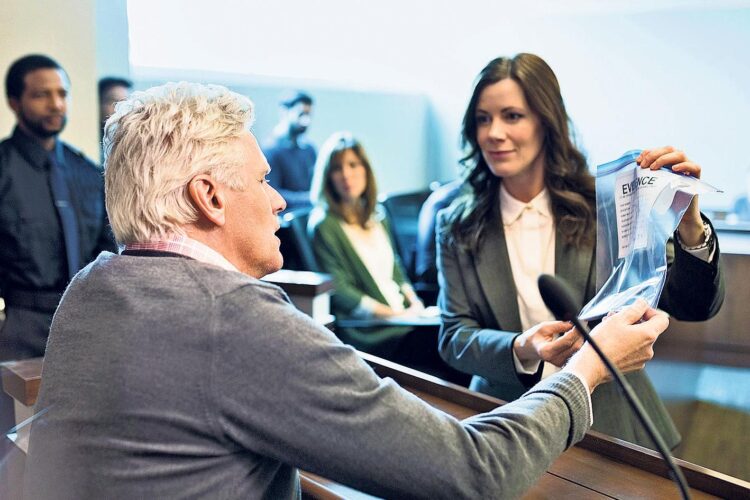Being an expert witness in the medical field requires the utmost precision and accuracy. As a medical expert witness, your testimony can make a big impact on the outcome of a case, whether it’s related to insurance, medical malpractice, or workers’ compensation. As an expert witness, you have the responsibility to present impartial evidence and testimony that is based on the facts. To maximize your effectiveness as a medical expert witness, it is important to understand the role of an expert witness, formulate strategies for effective testimony, recognize potential issues to avoid, and consider ethical considerations when serving as an expert witness.
Page Contents
What Makes a Strong Expert Witness?

Source: sandmanlegal.com
A strong expert witness is one who is able to provide reliable and accurate testimony in a legal setting. To be credible, the witness must be able to back up their statements with facts and evidence. They must also possess a thorough understanding of the field in which they are testifying.
Expert witnesses should also demonstrate a clear understanding of the law and be able to explain complex concepts in a way that laypeople can understand. Above all, a strong expert witness is one who is impartial and objective when providing testimony. They should be able to think critically and put aside any pre-existing biases to provide an unbiased opinion. Finally, a professional demeanor and excellent communication skills are essential for an expert witness to be taken seriously.
Strategies for Effective Testimony

Source: thetimes.co.uk
When testifying as a medical expert witness, it is essential to maintain an objective, professional demeanor and to provide clear, direct testimony. An effective medical expert witness must be able to explain their testimony with clarity and confidence, demonstrating their expertise without becoming overly technical.
It is important for the expert witness to be aware of the rules of evidence and to provide only reliable and relevant medical testimony. They should also understand the legal principles relevant to the case, and be prepared to answer questions posed by lawyers. It is also important to communicate complex medical information in a manner that is easy to understand. Expert witnesses should also be prepared to refute any claims that are false or misleading.
Common Pitfalls to Avoid as an Expert Witness
It is important that expert witnesses take extra caution to avoid any potential pitfalls during their testimony. Expert witnesses must remain unbiased and honest, no matter the situation. It is also important to refrain from offering opinions not asked for, as this can lead to confusion and discredit the witness. It is also important to remain succinct and present only relevant evidence, as going off-topic can lead to the expert witness being discredited.
Additionally, it is important for the expert witness to avoid being argumentative or confrontational. It is important to remain professional and concise, as these behaviors can damage the witness’s credibility. Furthermore, it is important to respect the time constraints of the court. Expert witnesses should be careful to always maintain their credibility when giving testimony in court. This means avoiding inappropriate comments or jokes that could harm their reputation or the case they are testifying for.
Ethical Considerations When Serving as an Expert Witness Calling a Medical Expert Witness

Source: ft.com
When an attorney calls upon a medical expert witness to provide testimony, there are certain ethical considerations that must be taken into account. First and foremost, the expert witness must remain impartial and objective in their opinions, while still providing an accurate assessment and diagnosis of the case.
Expert witnesses have to be impartial when giving testimony, as their statements should benefit the case and not reflect their personal opinions. Furthermore, expert witnesses must never misrepresent any facts or present any fraudulent evidence. Finally, expert witnesses must always remain aware of their professional obligations and only testify when they are reasonably knowledgeable about the subject matter at hand.
Conclusion
Being an expert witness in the medical field is a serious responsibility with considerable ethical and legal implications. As a medical expert witness, you need to approach challenging situations with neutrality and be able to communicate complex medical ideas clearly. To be an effective medical expert witness, you need to understand the value of your role, be knowledgeable of the legal system, and avoid common mistakes. Crafting a testimony that is both credible and persuasive is an invaluable skill that affects the outcome of cases. If you prepare and commit to becoming a medical expert witness, you can assist the legal system and be successful.




